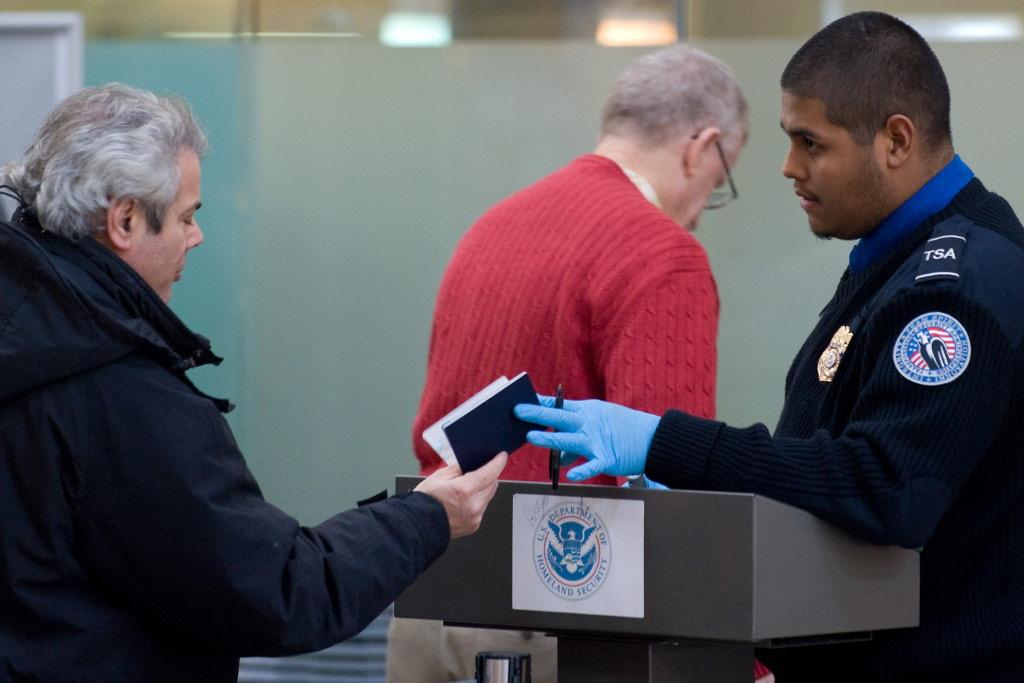Countries woo rich Chinese with citizenship abroad
A Transportation Security Administration official checks the identification of passengers prior to entering a security checkpoint at Ronald Reagan Washington National Airport in Arlington, Virginia, on December 29, 2009.
Wealthy Chinese are on a global shopping spree. Along with handbags, art and condos, they're also buying foreign visas.
Australia just announced that it has sold the first "significant investor" visa to an unnamed, wealthy Chinese toy maker. The visa is given to rich foreigners who agree to invest at least $5 million in the Australian economy.
Under the program, investors get to settle in Australia for four years, with the potential for a permanent visa later. The Australian government said it created the program to encourage foreign investment and build the national economy. So far, it already has 170 rich applications with a potential investment of $850 million. Deloitte estimates Australia could issue as many as 700 visas a year under the program.
The visa sounds practical enough on paper. And there seems to be no end of demand among wealthy Chinese to emigrate (and move their money) out of China as quickly as possible.
Yet Australia's investor visa raises controversial questions about selling citizenship, and runs the risk of the same fraud, abuse and false promises that have dogged similar programs in the US and Europe.
America's investor visa program — known as EB-5 — is now dominated by wealthy Chinese investors. It allows people who invest at least $500,000 (or in some cases $1 million) and create at least 10 jobs to get a temporary visa and apply for permanent citizenship. About 80 percent of the 7,641 immigrants who got visas under the program last year were from China.
Yet an analysis by the Federation for American Immigration Reform found that the failure rate for the program was "very high," the economic benefits "have been negligible at best," and there has been "no reliable accounting of jobs created."
(Read More: Why Immigration Legislation May Disappoint Activists)
Even worse, the Department of Homeland Security's Office of the Inspector General is now investigating the EB-5 program for fraud, waste and abuse. The SEC recently filed charges against two companies in Illinois for selling $145 million in securities and collecting $11 million in fees from rich Chinese applicants.
The special zones created for the EB-5 project are supposed to be high-unemployment areas. But many are five-star hotels or high-end condos in affluent major cities. One project included a $750 million office tower in midtown Manhattan. Many argue that the program is substituting market-rate investment capital with much cheaper financing from wealthy Chinese who are willing to take low returns for green cards.
(Read More: Immigration Reform: What's It Going to Cost?)
The EB-5 controversy has come into the spotlight in Virginia, where Terry McAuliffe — the longtime Clinton pal — is running for governor. Reports say his electric car company, GreenTech, used money from EB-5 investors and Virginia officials are quoted in memos expressing doubts about a "visa-for-sale" scheme.
The backlash, however, may not be as powerful as the economic incentives to keep the program going. China is creating more rich people — and they are willing to pay hefty sums for citizenship and an escape route from the Chinese government. At the same time, governments in the West are looking for cash. The result will be a bidding war to sell visas to wealthy Chinese.
As Australia's Immigration Minister Brendan O'Connor said: "Australia is in active competition with other countries across our region for successful, high-wealth."
More from our partner, CNBC:
CNBC: What to expect from Disney's earnings
CNBC: Small businesses you can't believe exist
CNBC: More retail investors own Apple than ever: TD
Every day, reporters and producers at The World are hard at work bringing you human-centered news from across the globe. But we can’t do it without you. We need your support to ensure we can continue this work for another year.
Make a gift today, and you’ll help us unlock a matching gift of $67,000!
